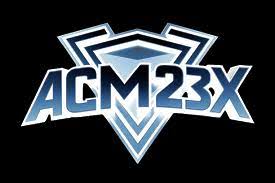In today’s fast-paced world,sports medicine near me maintaining peak physical health is more important than ever, especially for athletes and active individuals. Whether you’re a professional athlete, a weekend warrior, or someone who loves staying active, understanding and utilizing sports medicine can be a game-changer. This blog post unveils the significance of sports medicine, its role in injury prevention and recovery, and how you can find reliable sports medicine services near you.
Understanding Sports Injuries
Sports injuries are part and parcel of an active lifestyle, but that doesn’t mean they should be taken lightly. Common types of sports injuries include sprains, strains, fractures, and tendinitis. These injuries can significantly impact an athlete’s performance and overall health. Even a seemingly minor injury can escalate and cause long-term problems if not treated properly.
Athletes often push their bodies to the limits, making them more susceptible to injuries. The repetitive movements in sports can lead to wear and tear on muscles and joints. Understanding the nature of these injuries is crucial for effective treatment and prevention. It’s here that sports medicine shines, offering targeted solutions to help athletes recover and get back in the game.
The impact of sports injuries extends beyond physical pain. They can affect an athlete’s mental well-being, leading to frustration and stress. Losing time on the field can be devastating, which is why seeking expert care immediately is essential. Sports medicine professionals are trained to handle such injuries with precision, aiming for a swift and complete recovery.
The Role of a Sports Medicine Physician
A sports medicine physician plays a pivotal role in the healthcare team for anyone involved in physical activities. These specialists possess expertise in diagnosing, treating, and preventing sports-related injuries. They offer a comprehensive approach to care, ensuring that athletes not only recover from injuries but also enhance their performance.
Sports medicine physicians provide a wide range of services, from physical examinations to developing personalized treatment plans. Their goal is to address the unique needs of each athlete, considering factors like age, fitness level, and type of sport. They work closely with other healthcare professionals, such as physical therapists and nutritionists, to offer holistic care.
The expertise of sports medicine physicians extends beyond just treating injuries. They educate athletes on proper training techniques, nutrition, and injury prevention strategies. By understanding an athlete’s goals and limitations, they can provide tailored advice to optimize performance and reduce the risk of future injuries.
Finding the Right Care
Locating reputable sports medicine clinics and physicians “near me” is a crucial step for anyone seeking specialized care. Start by researching clinics that have a strong reputation and positive reviews from patients. Look for facilities that offer a range of services, including diagnostics, treatment, and rehabilitation.
Word of mouth can be an invaluable resource when searching for sports medicine care. Ask fellow athletes, coaches, or trainers for recommendations. Personal experiences can give you insight into the quality of care provided by different clinics and physicians.
An online search can also aid in finding sports medicine services nearby. Use keywords like “sports medicine near me” to discover local options. Many clinics have websites that provide detailed information about their services, staff, and patient outcomes. Take the time to explore these resources and choose a clinic that aligns with your needs.
Treatment Modalities

Sports medicine offers an array of treatment modalities designed to facilitate recovery and enhance performance. Physical therapy is a foundational component, focusing on strengthening muscles, improving flexibility, and restoring range of motion. Customized exercise programs help athletes regain their fitness and prevent future injuries.
Regenerative medicine is an exciting frontier in sports medicine, involving techniques like platelet-rich plasma (PRP) therapy and stem cell injections. These treatments promote healing at the cellular level, accelerating recovery and reducing downtime. Athletes benefit from quicker returns to their sports with less risk of re-injury.
Surgery remains a critical option for severe injuries that cannot be managed through conservative means. Sports medicine surgeons are skilled in performing minimally invasive procedures, resulting in shorter recovery times and excellent outcomes. Whether it’s repairing torn ligaments or reconstructing joints, surgical interventions are tailored to meet each athlete’s unique needs.
Preventing Future Injuries
Prevention is the best cure, and sports medicine emphasizes strategies to minimize the risk of injuries. Athletes can adopt several practices to safeguard their health and enhance performance. Warm-up exercises and stretching routines prepare the body for physical activity, reducing the chances of strains and sprains.
Proper equipment and technique are essential components of injury prevention. Wearing appropriate gear and using correct form during activities can significantly reduce the likelihood of accidents. Sports medicine professionals can provide guidance on equipment selection and training techniques tailored to specific sports.
Incorporating cross-training and rest days into workout routines is vital for preventing overuse injuries. Engaging in a variety of exercises minimizes repetitive stress on the same muscle groups, while rest days allow the body to recover and rejuvenate. Balancing training intensity with adequate rest ensures long-term athletic success.
Testimonials and Success Stories
The success stories of individuals who have benefited from sports medicine treatments are inspiring and motivational. Consider the case of Sarah, a passionate runner who suffered a debilitating knee injury. With the help of sports medicine professionals, she underwent a tailored rehabilitation program that included physical therapy and strength training. Today, Sarah is back on the track, running stronger than ever.
Another example is Mark, a soccer player who faced a shoulder injury that threatened his career. Thanks to the expertise of sports medicine surgeons, Mark underwent a minimally invasive procedure followed by targeted rehabilitation. Within months, he returned to the field, showcasing improved performance and resilience.
These testimonials highlight the power of sports medicine in transforming lives. By prioritizing specialized care, athletes like Sarah and Mark have overcome challenges and achieved remarkable comebacks. Their stories serve as a testament to the effectiveness of sports medicine in promoting recovery and enhancing athletic potential.
Conclusion
In a world where sports and physical activities are integral to our lives, the importance of sports medicine cannot be overstated. This specialized field provides athletes and active individuals with the tools they need to conquer injuries and perform at their best. From diagnosing and treating injuries to offering preventive strategies, sports medicine professionals play a vital role in supporting optimal health.


